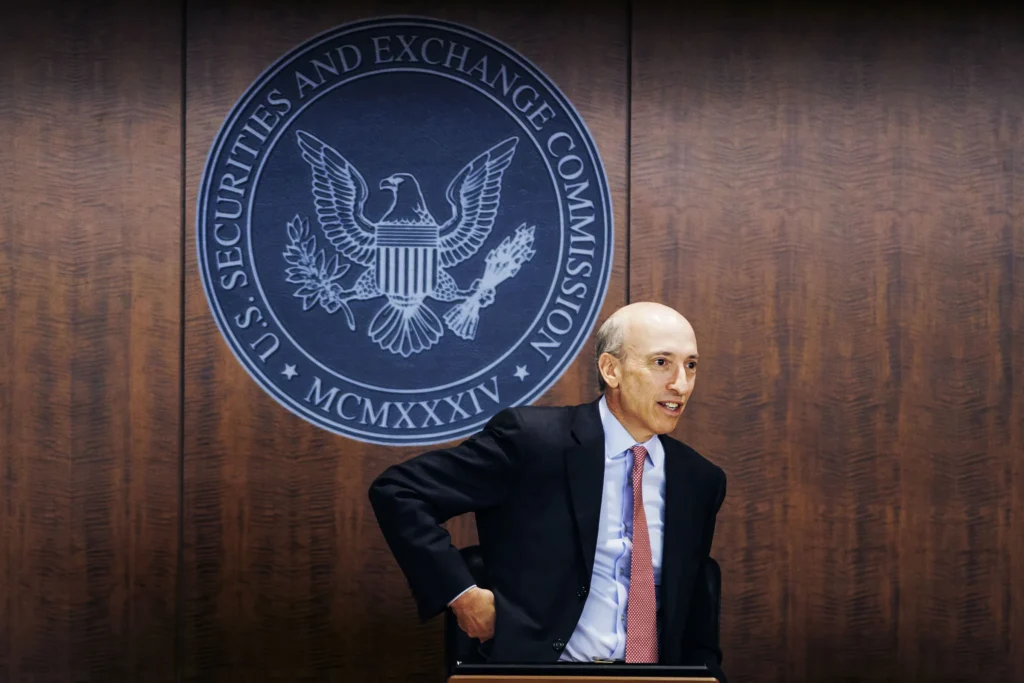Citing regulatory overreach, the Blockchain Association and Crypto Freedom Alliance sue the SEC over the expanded definition of digital asset dealers.

A lawsuit has been initiated against the U.S. Securities and Exchange Commission (SEC) by the Blockchain Association and the Crypto Freedom Alliance of Texas (CFAT).
The lawsuit challenges a new rule that broadens the definition of a “dealer” in the context of digital assets.
However, the legal challenge, filed in the District Court for the Northern District of Texas, seeks to reverse this broad interpretation.
SEC Accused of Digital Asset Regulation Overreach
Plaintiffs contend that the new definition may erroneously classify them as dealers, even those who merely trade digital assets.
Meanwhile, this apprehension stems from the regulation’s emphasis on the consequences of trading instead of the transactions’ intrinsic characteristics.
They contend that the regulation fails to distinguish between dealers and individuals (traditionally exempt from dealer status) who trade for their accounts.
Purportedly violating legal requirements, the lawsuit asserts that the SEC circumvented essential protocols by failing to undertake an economic analysis or give due consideration to public feedback.
The Blockchain Association has voiced dissent, highlighting the potential for the regulation to affect all digital asset market participants, including users who exclusively engage in liquidity pools.
They contend that this extensive scope demonstrates the SEC’s regulatory excess.
Blockchain Association Opposes Warren’s Digital Asset Legislation
The SEC endorsed the revised dealer definition by a 3-2 vote in February, placing greater emphasis on conducting a functional analysis of activities related to securities trading.
However, in support of its ruling, the regulator contended that omitting cryptocurrencies from this definition might confer an unjust advantage on crypto dealers vis-à-vis conventional financial institutions.
Critics have characterized the SEC’s stance on digital assets as lacking coherence.
Moreover, uncertainty pervades the industry as the commission has not definitively established which digital asset transactions constitute securities transactions.
According to its detractors, the SEC’s ad hoc classification of digital assets as securities contributes to regulatory ambiguity.
In addition, the Blockchain Association has also expressed concern over Senator Elizabeth Warren’s proposed legislation in related news.
Critics contend that the Digital Asset Anti-Money Laundering Act of 2023 may compromise the competitiveness and economic stability of the United States.
Additionally, such legislation warns the association that it could force U.S. companies to relocate overseas and endanger thousands of Americans’ employment.
The lawsuit petitions the court to declare the SEC’s regulation unlawful, arbitrary, or capricious.
Furthermore, the petition aims to obstruct the SEC’s implementation of this regulation, emphasizing its capacity to discourage domestic innovation.

